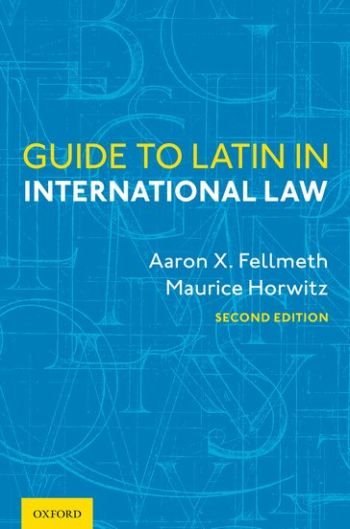
The device(s) you use to access the eBook content must be authorized with an Adobe ID before you download the product otherwise it will fail to register correctly.
For further information see https://www.wildy.com/ebook-formats
Once the order is confirmed an automated e-mail will be sent to you to allow you to download the eBook.
All eBooks are supplied firm sale and cannot be returned. If you believe there is a fault with your eBook then contact us on ebooks@wildy.com and we will help in resolving the issue. This does not affect your statutory rights.
As knowledge of Latin continues to diminish, its frequent use in cases, textbooks, treaties, and scholarly works baffles law students, practitioners, and scholars alike. Many of the Latin terms commonly used by international lawyers are not included in some of the more popular law dictionaries. Terms and phrases included in modern dictionaries usually offer nothing more than a literal translation without sufficient explanation or context provided.
The Guide to Latin in International Law provides a comprehensive approach and includes both literal translations and definitions with several useful innovations. Included is not only the modern English pronunciation but also the classical or "restored" pronunciation. Its etymology is more complete than the leading law dictionary on the market, and the definition for each term includes examples used in context whenever helpful. Each entry is also cross-referenced to related terms for ease of use. This updated edition is the quintessential desktop reference for understanding Latin terms and phrases across all areas of international law.